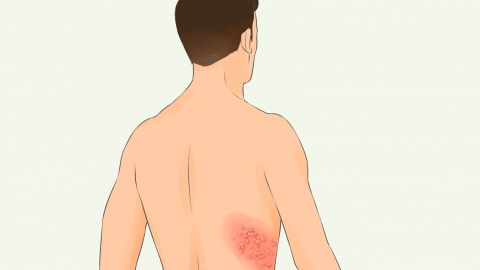Can herpes simplex virus be cured?
Generally, the treatment outcome of herpes simplex virus infection and whether it can be completely cured depend on multiple factors, including the type of infection, the infected site, the individual's immune status, and the timing of treatment. If discomfort symptoms occur, timely consultation and treatment at a regular hospital are recommended. Detailed analysis is as follows:

For primary infections, if timely and proper treatment is initiated early in the course of symptoms, most patients experience relief from skin blisters, pain, and other symptoms within 1–2 weeks and the viral replication can be controlled. However, the virus remains latent in the ganglia and cannot be completely eliminated from the body even after symptoms subside. Individuals with normal immune function have a low probability of recurrence, while those with weakened immunity require greater attention to prevention and control.
For recurrent infections, symptoms are usually milder than those of primary infections. Prompt medication at the early stage of recurrence can shorten the disease course and alleviate discomfort. However, the latent virus always persists and cannot be completely removed through treatment. The treatment effect is mainly reflected in symptom relief and reduced recurrence frequency. Individuals with compromised immune status may require long-term preventive measures to reduce the risk of recurrence.
Seek medical attention promptly upon symptom onset and take adequate medication for the full prescribed course as directed by a physician. Maintain regular作息 (作息 should be translated as "作息" is missing in the English version; perhaps "lifestyle" or "daily routine") daily routines and a balanced diet to enhance immune function. Avoid scratching the affected area to prevent secondary infections. During the active phase of illness, avoid close contact with others, especially skin-to-skin or mucosal contact, to reduce the risk of transmission.









